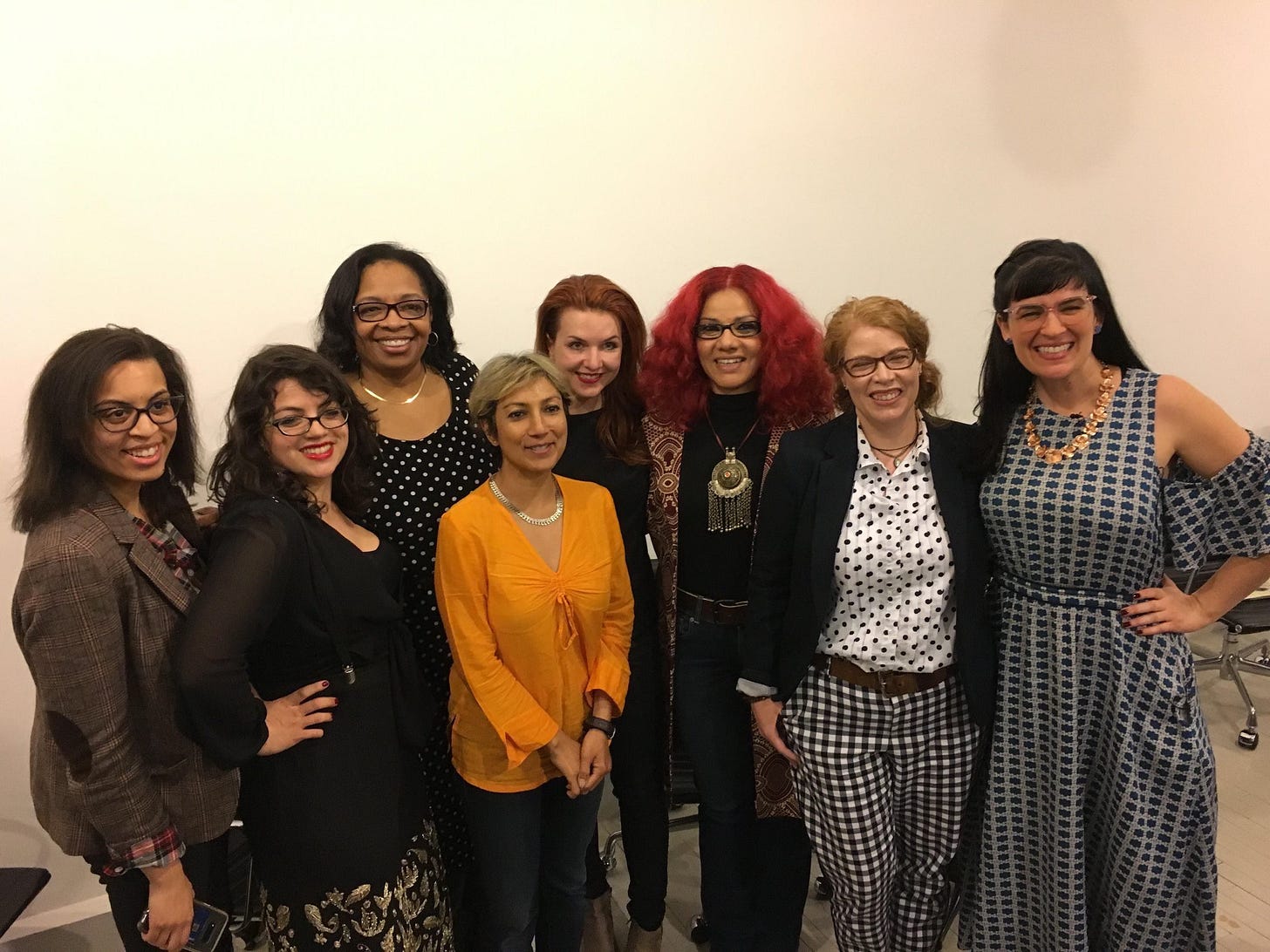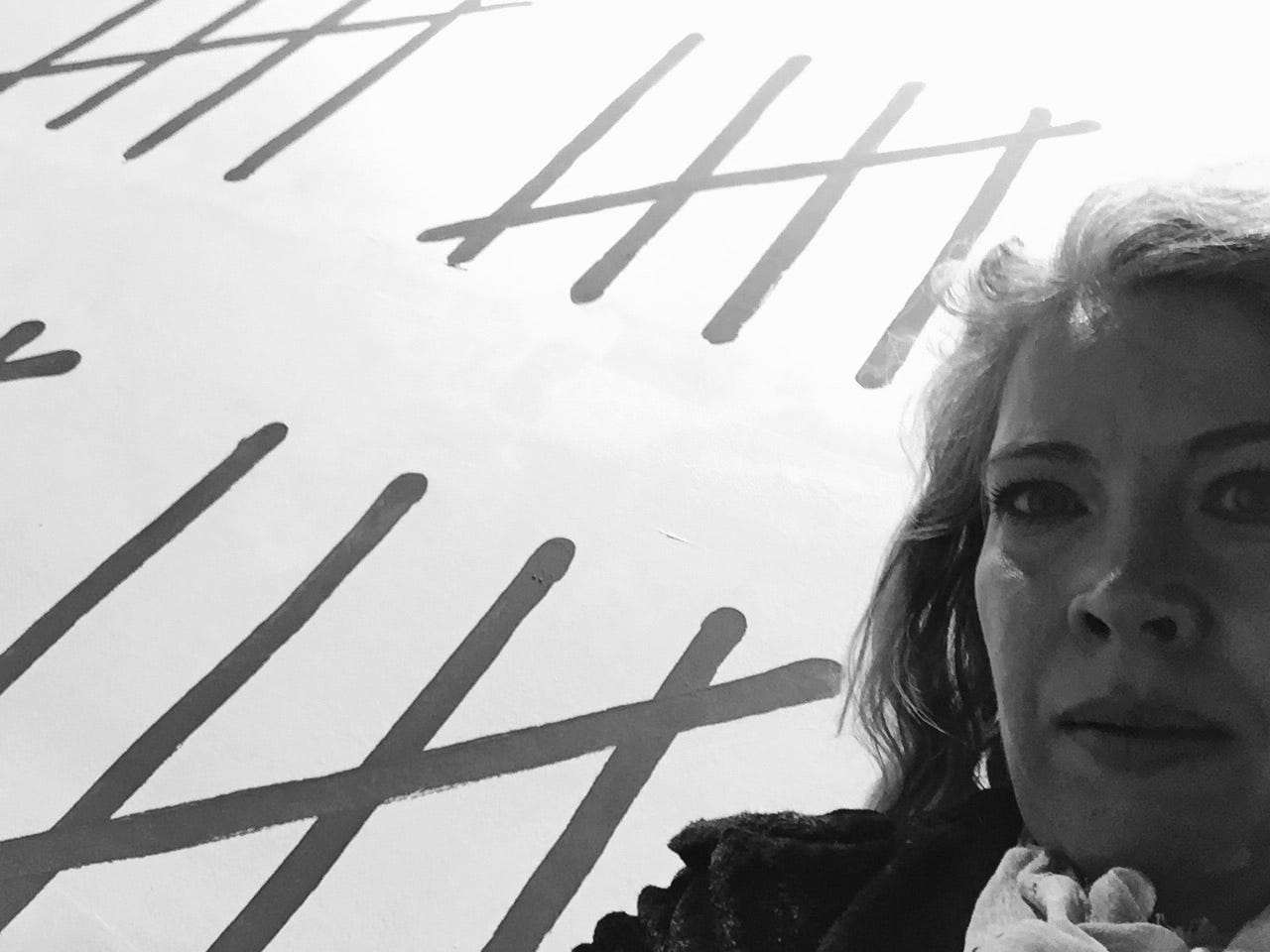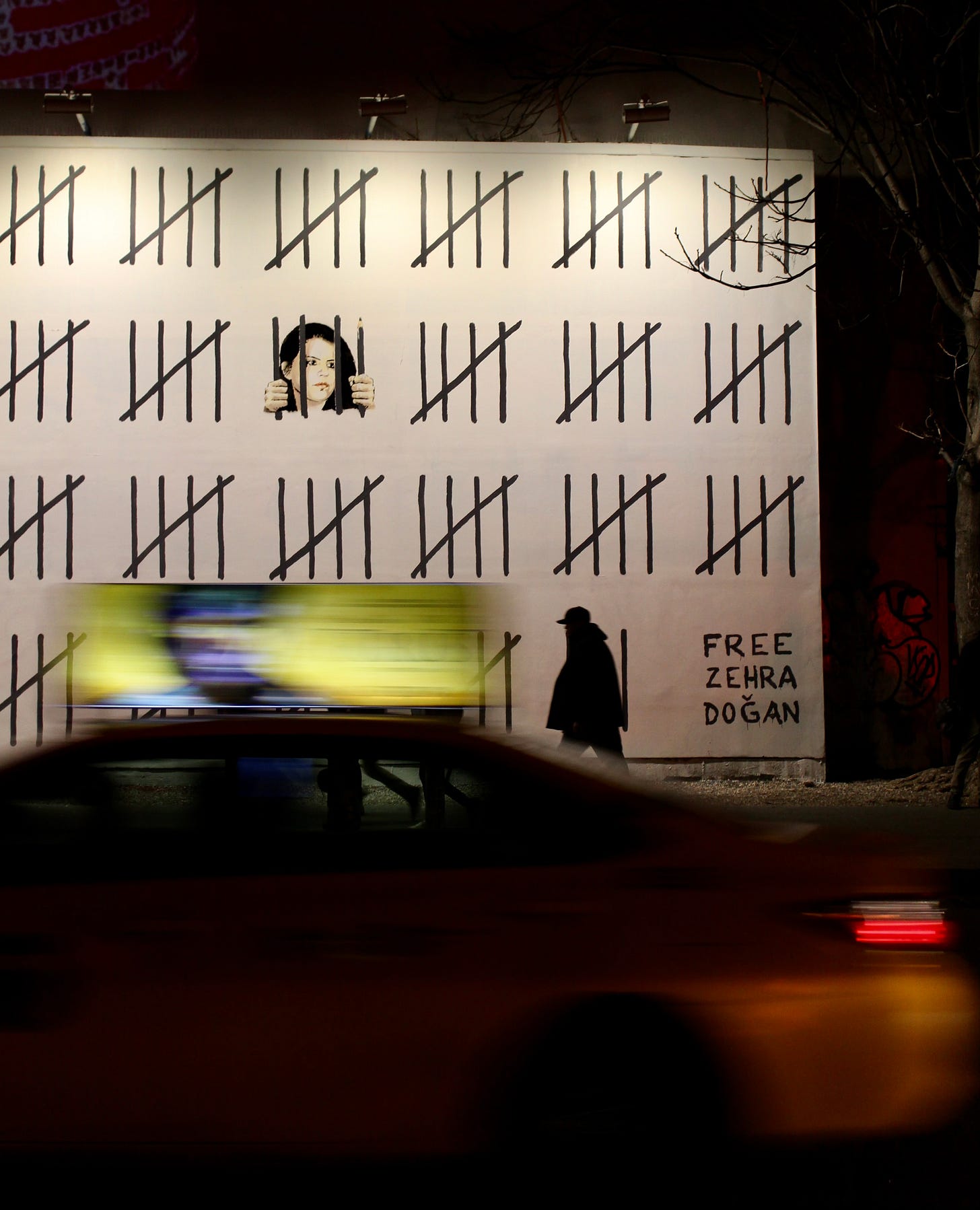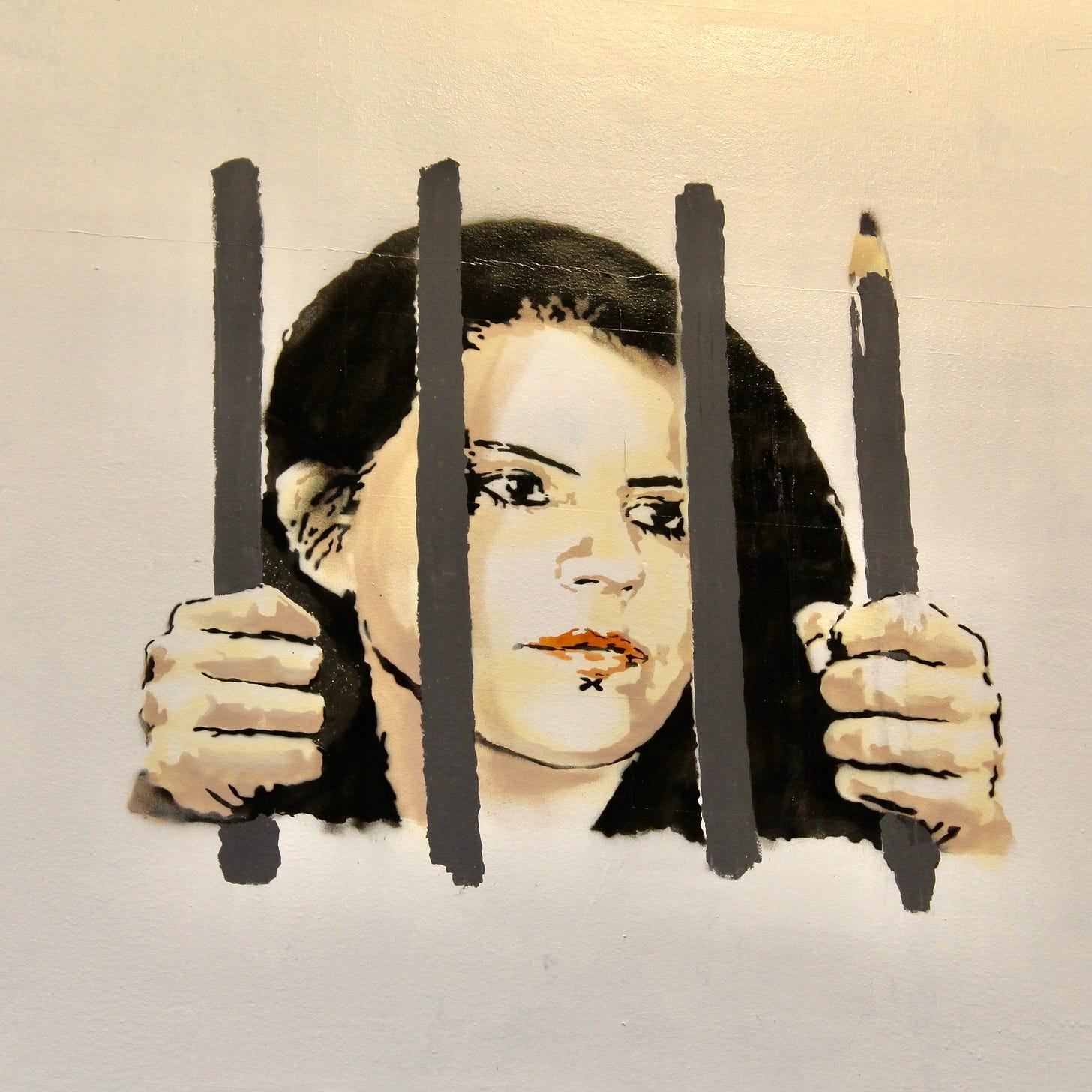I hope you’ll forgive my indulgence in revising this essay. After sitting with it for a couple of days, I realized what I had originally posted was two underdeveloped essays. I have broken them apart to give each one the attention and focus they deserve. The beginning of this essay remains the same, however, I added a new conclusion and additional photos I think you’ll enjoy. - J
The other day, while scrolling through my photo widget on my computer, I came across a screenshot of an Instagram post by
, a renowned Egyptian-American journalist and social commentator known for her advocacy on women’s rights and social justice. The photo, dated August 2018, featured a powerful quote by Gloria Anzaldúa:“Writing is dangerous because we are afraid of what the writing reveals: the fears, the angers, the strengths of a woman under a triple or quadruple oppression. Yet in that very act lies our survival because a woman who writes has power. And a woman with power is feared. I have never seen so much power in the ability to move and transform others as from the writing of women of color.”
I was introduced to Eltahawy and her work by Kate Kelly, a human rights attorney and a founding member of Ordain Women, a Mormon feminist organization. During my grad school research on the social effects that LDS women experienced for participating in feminist activism, I was asked to moderate a panel discussion in New York City to celebrate their five-year anniversary.

Eltahawy was one of the panel’s guests. In preparation, I read her first book, Headscarves and Hymens: Why the Middle East Needs a Sexual Revolution, and was profoundly moved by the beauty and power of the Arab feminist theorists she quoted.
The book’s dedication is a powerful and inspiring call to action:
To the girls of the Middle East and North Africa: Be immodest, rebel, disobey, and know you deserve to be free
Eltahawy’s work is an urgent call to dismantle patriarchal structures that oppress women globally. Her unflinching critique of both Western and Eastern misogyny exposes the pervasive nature of gender-based oppression, especially within religious contexts. Her dedication is a radical act of solidarity and defiance, challenging us to confront and resist the systems of power that seek to control women’s bodies and lives.
That screenshot containing Anzaldúa’s quote from Eltahawy’s Instagram account sparked an afternoon of reconnecting with her works. Reading her powerful words reminded me of my passions before my diagnosis.
Six months after the panel discussion, I woke from a nap paralyzed. I was later diagnosed with myasthenia gravis, a rare neuromuscular autoimmune condition that causes severe muscle weakness. Since my diagnosis six years ago, I’ve struggled to find purpose and a way forward.
Eltahawy and Anzaldúa’s words reignited my passion and reminded me that my voice still matters. Despite my physical limitations, I realized I could still contribute to the fight for justice and equality through words. This newfound sense of purpose led me to use my writing as a platform for change, transitioning from chronic illness advocacy to the social critique and commentary found in Hidden Narratives.
For this essay, I chose a photo I took of Banksy’s mural honoring Zehra Dogan. I captured the image while in NYC for the Ordain Women’s anniversary panel discussion. Dogan, a Kurdish artist and journalist, was imprisoned for her painting depicting the Turkish military’s destruction of a Kurdish-majority city. The mural, with its powerful message and striking imagery, perfectly embodies the spirit of resistance and defiance that I aim to convey in my work.

Reflecting on my journey, I realize that the power of words and stories is more important than ever. The screenshot of Gloria Anzaldúa’s quote, which sparked an afternoon of revisiting Mona Eltahawy’s work, reminds me that even in the face of physical limitations, the pen—or the keyboard—can be mightier than the sword. Eltahawy’s fierce advocacy and Anzaldúa’s profound insights reminded me of the important work that I was doing before my diagnosis.
As I navigate life with myasthenia gravis, I am continuously reminded that my voice, though soft and weak, is still powerful. Writing has become my sanctuary, a space where I can challenge injustices, share my truths, and advocate for those who might not yet have found their voices—perhaps even those who have forgotten who they were before life beat them down. The mural of Zehra Dogan, captured during a pivotal moment in my life, serves as a constant reminder of the resilience and defiance inherent in the fight for justice.
My journey has taught me that while my body may might not be reliable, my fierce determination to talk about the hidden ways that power works to oppress, can not be subdued. The words of women like Eltahawy, Anzaldúa, and Dogan remind us that writing is not just a reflection of our struggles but a testament to our survival and strength.

In the spirit of these fearless women, I continue to write and resist, knowing that every story shared and every injustice exposed brings us one step closer to a more equitable world. My diagnosis may have altered the course of my life, but it has not diminished my determination. In fact, it has only made my resolve stronger.
xo,
Jennifer
Hi, I’m Jennifer and I’m new here. I do not know what I am doing, or how to do it yet. I am learning. I am willing to make mistakes without shame as I learn to write more publicly. I have written most days since my diagnosis but have been too afraid to make my thoughts known to anyone but the people closest to me. I’ve been afraid to been seen because I fear my voice doesn’t matter. Connecting with others in the chronic illness community has given me the courage to write because I have found new friends through writing. If this sounds like you, follow along, share this post, and consider subscribing. We have a lot to learn from each other.




“…a woman who writes has power.” I’m plugging that into my week.
Powerful and beautifully written. I missed your presence. Glad to have you back.